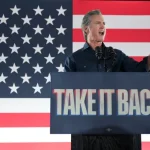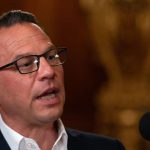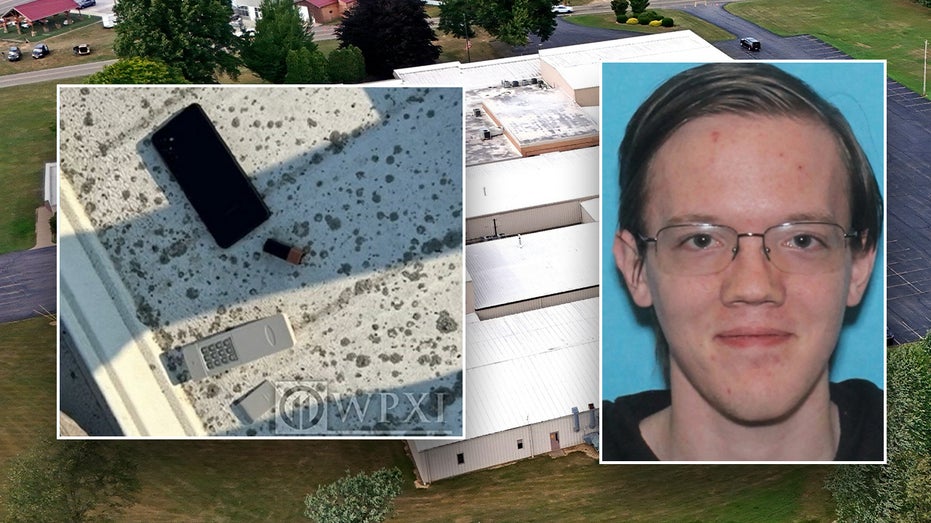BUTLER, Pa. – Bodycam footage from local police who interrupted Thomas Matthew Crooks seconds before he opened fire on former President Trump and a crowd of Pennsylvania political rally goers last month is on the verge of being released, Fox News Digital has learned.
The footage, scheduled to be released later Thursday, is understood to show the moment an officer from the Butler Township Police Department scaled the roof where Crooks was stationed, seconds before he unloaded his DPMS AR-15 rifle and struck Trump in the ear, killed Corey Comperatore and injured two others.
Lt. Matthew Pearson, the acting chief of the Butler Township Police Department, told Fox News Digital the footage is being prepared for public release and that it will provide a clearer picture of the seconds leading up to the deadly July 13 shooting.
TRUMP SHOOTING: TIMELINE OF ASSASSINATION ATTEMPT
Another officer helped hoist the officer onto the roof of the American Glass Research (AGR) building after some people in the crowd pointed and screamed that there was a suspicious individual with a gun on the roof.
The hoisted officer was able to grab hold of the edge of the building’s roof, which was 12 feet above the ground, Butler Township Manager Thomas Knights previously told Fox News Digital. As the officer lifted himself up, Knights said the officer spotted an individual on the roof who “was identified as having a weapon” and “did point that firearm at our officer.”
As Crooks pointed the firearm at the officer, the officer ducked his head, losing his grip on the roof’s edge and falling about eight feet to the ground, spraining his ankle, the township manager said.
Pearson told a local outlet that the officer was unable to draw his weapon since he was hanging from the building.
Seconds later, Crooks opened fire.
However, Butler County Sheriff Michael Slupe told the New York Post in the wake of the shooting that the officers who interrupted Crooks likely provided enough of a distraction to save Trump’s life.
“If I’m interrupted, and I move my gun, you are going to have to reassess that whole situation at this point, so yes, you can make a case that those two officers saved the president’s life,” Slupe told the outlet.
TRUMP SHOOTER THOMAS CROOKS CLASSMATES DESCRIBE QUIET STUDENT AS INVESTIGATORS SEARCH FOR MOTIVE
Slupe said “timing is everything,” and the interruption to the shooter bought Trump the seconds he needed to miraculously turn his head so that the bullet struck only his ear.
“Can you imagine 10 seconds before that?” the sheriff asked. “That the president was looking straight ahead and where that bullet could have potentially landed.”
Details about what exactly took place that day and the security breaches that paved the way for the shooting have been muddied by finger-pointing among the various agencies involved at the local, state and federal levels.
Then Secret Service Director Kimberly Cheatle, in particular, was heavily criticized for not providing regular briefings to the public and ultimately resigned her post.
A public spat between the Secret Service and local police has also raged over who bears most responsibility for the shooting.
News of the impending bodycam footage release also comes after Butler County denied a Fox News Freedom of Information Act request for bodycam footage and radio communications from the Butler County Sheriff’s Office, which is a separate agency from the Butler Township Police Department.
The Butler County Emergency Services Unit, along with the Beaver and Washington County ESUs, also assisted in security measures that day.
‘”Helmet and body camera footage from all the Butler County officers working physically on site’: does not exist in the possession, custody and/or control of Butler County per the Butler County Sheriff, and that portion of the request is therefore denied as permitted by Section 705 of the RTKL (Right-to-Know Law),” Butler County told Fox News.
Butler County also noted that radio communications between the agencies are being withheld at least while the investigation is ongoing.
Fox News’ Stephen Sorace and Audrey Conklin contributed to this report.
























